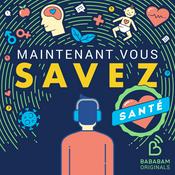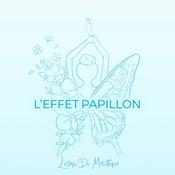39 épisodes

Episode 38. Christmas Special - Ian Shaw & Trudy Kerr
13/12/2025 | 26 min
Geoff closes the year with a Christmas ‘session’ that blends memory, humour, and unapologetic swing, featuring the brilliant Ian Shaw and the incomparable Trudy Kerr. From the first count-in you can feel the band's pocket and the playful way we shape tradition: ‘God Rest Ye Merry, Gentlemen’ settles into a medium swing, ‘O Come All Ye Faithful’ nods to Horace Silver, ‘Hark! The Herald Angels Sing’ stretches on a tasty vamp, and ‘Deck the Halls’ dances with a Latin pulse.Between takes we wander through the stories that make the season personal. Ian riffs on Johnny Mathis's legendary breath control, the showbiz roots behind those perfect phrases, and why holding a single note can be a high-wire act! We laugh about panettone, glittering rooms at London’s ‘Crazy Coqs’ cabaret club, and the problem of wrapping paper that accidentally exposes Santa. Trudy arrives with sunlit memories of Australian Christmases and the heat-haze version of turkey and tinsel. Then she leans into a tender ‘Away in a Manger' that quiets the room.If you love jazz vocals, holiday standards, or just hearing great singers play with form, this episode is for you. We talk phrasing, key choices, vamps, and why carols thrive in swing without losing their heart. And yes, we celebrate Quartet Volume 5, our brand new Christmas edition of the play-along app for iOS, built for singers and players who want a tight, responsive band in their pocket. It's an invitation to practice, perform, and find new colours in songs you've known forever.Presenter: Geoff GascoyneSeries Producer: Paul SissonsProduction Manager: Martin SissonsThe Quartet Jazz Standards Podcast is a UK Music Apps production.

Episode 37. Norma Winstone (Vocals) - 'Joy Spring'
01/12/2025 | 41 min
Geoff is in the coastal town of Deal in Kent to meet with the wonderful jazz singer and lyricist Norma Winstone.A childhood steeped in radio, a cinema crush on Lena Horne, and a record collection that swung from Ella and Louis to Sinatra’s ‘Only The Lonely’—Norma charts how a voice finds its own gravity.We talk about the hinge moments that redirected the road: pub sit‑ins that led to John Taylor, the New Jazz Orchestra and Michael Garrick inviting the voice into instrumental roles, and Kenny Wheeler asking for words to expansive, breath‑testing lines. There's a live spin through Clifford Brown’s 1950s standard ‘Joy Spring’ (accompanied by the Quartet app) where she improvises new melodies while keeping the lyric intact, showing how language can anchor freedom.Azimuth's origin story unfolds—an improvised loop, Manfred Eicher's instinct for flugelhorn and voice, and the Oslo sessions that changed how she heard her own tone. We touch favourites and influences, from Herbie Hancock's writing to the Bill Evans trio at Ronnie Scott's, and dig into stagecraft: moving past nerves by focusing on music, not self, and shaping a personal sound that carries feeling in the first syllable. Upcoming projects include Nikki Iles, Dave Holland, and Pete Churchill's choir, honouring Kenny Wheeler's poem settings with the care they deserve.If you love vocal jazz, lyric writing, ECM lore, and the craft that turns breath into resonance, this conversation offers history, technique, and heart in equal measure. Follow and subscribe, share with a friend who loves jazz, and leave a review with the lyric that changed you—what's yours?Presenter: Geoff GascoyneSeries Producer: Paul SissonsProduction Manager: Martin SissonsThe Quartet Jazz Standards Podcast is a UK Music Apps production.

Episode 36. Charlie Wood (Vocals) - 'Bye Bye Blackbird'
21/11/2025 | 41 min
Geoff is back in Bedford, England to sit down with the highly-acclaimed American singer, songwriter and keyboardist Charlie Wood.A voice steeped in Memphis and refined in London, Charlie Wood’s conversation moves from Beale Street grind to big-band elegance. We start with origins: a home filled with Charlie Parker records, classical lessons, and the kind of eclectic listening that makes Johnny Cash, B.B. King, and Debussy feel like neighbours. That early mix shaped a musician who treats songs as stories first and chord changes second, and it shows when Charlie improvises on the Ray Henderson 1920s standard ‘Bye Bye Blackbird’ (accompanied by the Quartet app of course), then flips the script by improvising lyrics from a history book, letting syntax and swing lead the way.Geoff digs into the craft behind the sound. Charlie breaks down the physics of the organ trio, why pedal bass changes the comping map, and how space keeps the groove clean. He explains how a seven-nights-a-week Beale Street residency sharpened his repertoire, pushed him toward lyric-driven standards, and taught him to avoid repetition without losing clarity. The conversation moves to the realities of making a living: why US touring economics stalled, how European circuits and a Go Jazz Records release opened doors, and the serendipity that led to Jacqui Dankworth recording his song and, eventually, to a life in the UK.Arranging fans get plenty to chew on. Charlie shares his approach to writing for small big band and strings, anchored by John Dankworth's deceptively simple guidance: “…write the notes you want to hear, then orchestrate”. We talk constraint as a creative engine, the relaxed precision of the American jazz pianist Mose Allison, and why concise songs often carry the deepest punch. There are stories of high-pressure concerts that soared, candid thoughts on nerves and overplaying, and a few favourites for the road: Peggy's Skylight (Nottingham) for its warmth, Paris and New Orleans for colour, and that luminous 13 sharp 11 favourite chord.If you enjoy thoughtful conversations about songwriting, jazz standards, organ technique, and the real-world life of a working musician, this one's for you. Subscribe, share with a friend, and leave a review so more listeners can find the show. What standard would you love to hear reinvented next?Presenter: Geoff GascoyneSeries Producer: Paul SissonsProduction Manager: Martin SissonsThe Quartet Jazz Standards Podcast is a UK Music Apps production.

Episode 35. Jacqui Dankworth (Vocals) - 'The Man I Love'
13/11/2025 | 37 min
This week Geoff is in Bedford, England to meet with one of the most highly regarded British jazz singers Jacqui Dankworth MBE – daughter of singer Cleo Laine and musician John Dankworth.A song can carry a family. This episode begins with Stephen Sondheim and a daughter finding strength after losing her mother, the incomparable Cleo Laine. From the first quiet days after the memorial to the bright lights of new stages, we trace an artist's path through grief, discipline, and the brave work of beginning again.Jacqui talks about the moment confidence clicked at boarding school, the drama teacher who opened a door, and the night a young mind met Judi Dench and felt its wings. Guildhall memories surface with the kind of detail musicians love: locking yourself away to prepare, sounding bad so you can sound true, and raising your average so it holds on tough nights.Growing up around Cleo Laine and John Dankworth meant learning by watching rather than formal lessons, and it taught a lifelong respect for craft. That ethos lives alongside a wide-open ear: Stevie Wonder's ‘Innervisions’, Ella Fitzgerald and Sarah Vaughan, Al Jarreau, Diane Reeves, and a family belief in "all music" that rejects genre silos and celebrates crossover.There are stories you'll replay: singing ‘London by Night’ down the phone to its composer (Caroll Coates), stepping onstage with Chick Corea while sick, and learning to tap for Sondheim’s musical ‘Follies’ as a way through heartbreak. There are songs you’ll replay: Jacqui treats us to a gorgeous improvisation of Gershwin’s 1920s standard ‘The Man I Love’ accompanied by none other than the Quartet jazz standards app. We unpack nerves, venues, and why large halls and church acoustics can free a voice. We revisit Jacqui’s ‘Live To Love’ album, the joy of reimagining Weather Report and Geoff and Jacqui’s collaboration ‘It’s Tomorrow's World’.Looking ahead, the goal is simple and brave: blend acting and singing, chase Sondheim, and keep making space where legacy and self can meet.If this journey resonates, follow the show, share it with a friend who loves jazz and theatre, and leave a quick review so more listeners can find us.Presenter: Geoff GascoyneSeries Producer: Paul SissonsProduction Manager: Martin SissonsThe Quartet Jazz Standards Podcast is a UK Music Apps production.

Episode 34. Dave Green (Bass) - 'Autumn Leaves'
05/11/2025 | 43 min
Geoff is in Ruislip, West London at the home of the legendary jazz bassist Dave Green.A soft case in an aircraft hold, a school-grade rental at a major festival, and the quiet conviction that your sound should survive all of it—Dave takes us through a bassist's life built on time, touch, and taste. From tea chest beginnings with next‑door neighbour Charlie Watts, to month-long residencies at Ronnie Scott's, Dave maps the long road from village halls to the world's jazz stages with humour and unflinching honesty.We dig into the craft: how to hold centre time with drummers who sit on the front of the beat, why Phil Seaman's volume still felt like joy, and what Trevor Tomkins taught about listening in real time. Dave shares why Jimmy Blanton and Scott LaFaro remain his north stars, how copying Israel Crosby on 78s shaped his phrasing, and the way a reliable room like PizzaExpress Jazz Club (Soho) lets the acoustic bass speak. There's a beautiful detour into instruments too: the 1860 Louis Lowendall that "wanted to be played" after years of rest, and the heavy Bohemian 7/8 that powered nights with Ben Webster, Coleman Hawkins, and Sonny Rollins.You'll hear road-level stories that humanise legends. A breakfast smile from Ron Carter, a stunned airport moment with Charlie Haden, a shy hello to Herbie Hancock at a tour party—and a cheeky reminder from Ron about leaving the stick bass behind. We also spin the 1940s standard ‘Autumn Leaves’ with the Quartet app and talk about the old ‘Ronnie’s' ecology where support bands learned by proximity, not paperwork.If you're a bassist, there's practical wisdom on adapting to rooms, instruments, and personalities without losing your voice. If you're a jazz fan, you'll get rare, warm snapshots of a scene that shaped modern British jazz from the inside out.Enjoyed the conversation? Subscribe, share with a friend who loves jazz!Presenter: Geoff GascoyneSeries Producer: Paul SissonsProduction Manager: Martin SissonsThe Quartet Jazz Standards Podcast is a UK Music Apps production.
Plus de podcasts Éducation
Podcasts tendance de Éducation
À propos de The Quartet Jazz Standards Podcast
Écoutez The Quartet Jazz Standards Podcast, Dialogues par Fabrice Midal ou d'autres podcasts du monde entier - avec l'app de radio.fr

Obtenez l’app radio.fr gratuite
- Ajout de radios et podcasts en favoris
- Diffusion via Wi-Fi ou Bluetooth
- Carplay & Android Auto compatibles
- Et encore plus de fonctionnalités
Obtenez l’app radio.fr gratuite
- Ajout de radios et podcasts en favoris
- Diffusion via Wi-Fi ou Bluetooth
- Carplay & Android Auto compatibles
- Et encore plus de fonctionnalités


The Quartet Jazz Standards Podcast
Téléchargez l’app,
Écoutez.







































